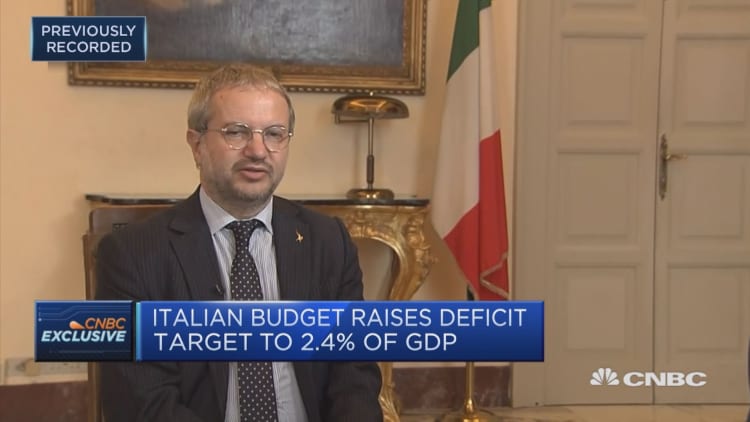
The European Union is "very likely" to reject Italy's controversial new budget proposals, according to the EU's budget commissioner.
A publication in German media outlet Der Spiegel had earlier reported that the EU had already rejected its draft spending plan and a letter to that effect was already on its way to Rome.
In a tweet following the report, the EU Budget Commissioner Gunther Oettinger said the media report was factually incorrect. However, Oettinger did concede that in his opinion it is "very likely that we have to ask Italy to correct the draft budget."
https://twitter.com/GOettingerEU/status/1052567171426119680
Italy's government submitted the draft budget just before the deadline late on Monday night. The country's populist and partly right-wing coalition wants to increase the country's deficit to 2.4 percent of annual economic output in 2019, as it looks to make good on pre-election spending pledges.
In reaction to both the Der Spiegel report and subsequent denial, Italian government bond yields rose to reach session highs. That represented selling of Italian debt as yields move inversely to prices, meaning investors are growing more cautious on lending money to the Italian government.
Within Europe, countries are expected to not run an annual deficit greater than 3 percent of gross domestic product (GDP). However, In Italy's case its huge debt pile has led to Brussels requesting that Rome work toward balancing its books.
Lawmakers in Italy had already upset Brussels when they performed an about turn on a previous agreement to submit a 2019 budget which would have recorded a deficit of 0.8 percent.


